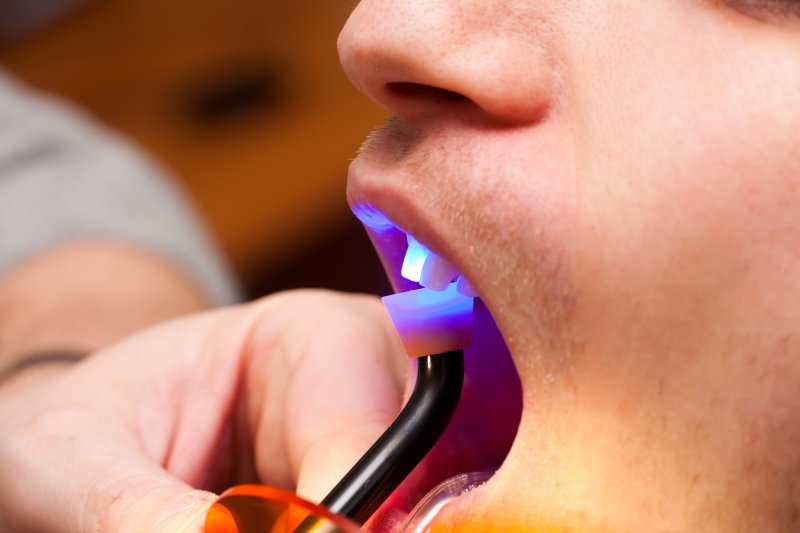
You could start with cosmetic dental bonding to fix light smile flaws. This option isn’t costly and takes very little time. That said, you may wonder: Is cosmetic dental bonding right for me?” It’s not a good idea to get a treatment if it doesn’t suit you. Well, just let your Fort Worth aesthetic dentist address your concerns. Here’s a primer on cosmetic dental bonding, including the bonding process and whether you’re a good treatment candidate.
What’s Cosmetic Dental Bonding?
Put simply, cosmetic dental bonding is a way for dentists to treat small smile flaws. It applies tooth-colored resin to your teeth to cover up imperfect areas. As a result, this procedure is great at hiding minor tooth stains, chips, cracks, and more.
Cosmetic dental bonding is a great option for varied reasons. For starters, it’s non-invasive and doesn’t require any anesthesia. The treatment is also less pricey than other cosmetic services. In fact, many view it as the most cost-effective form of aesthetic dentistry.
How Does the Bonding Process Work?
In most cases, the dental bonding process only takes one dental visit. That appointment isn’t long, either – it usually wraps up in a half-hour to an hour.
A dental bonding treatment has several key steps to it. First, the dentist preps your tooth by smoothing it and applying a conditioning liquid. They’ll then apply tooth-colored resin that closely matches the hue of your enamel. Next, the dental team will harden this resin with a specialized light source. They’ll conclude their care after shaping the bonding material to the right look.
Who’s a Good Candidate for It?
In the end, it doesn’t take much to qualify for cosmetic dental bonding. Nearly anyone can get this treatment. Still, some are better suited for it than others. You may be a good bonding candidate if you:
- Want to enhance the looks of your tooth, tooth gaps, or smile
- Have a damaged, chipped, fractured, or decayed tooth (or teeth)
- Need to cover an exposed tooth root
On the other hand, not everyone is a good fit for cosmetic dental bonding. This procedure likely won’t suit you if your bite is misaligned or needs adjustment. Similarly, its results won’t help much if your tooth lacks material to build up from.
To truly know if cosmetic dental bonding is right for you, consult your dental provider. They’ll assess your teeth and gums to see if treatment would help.
About the Author
Dr. Karen Littlefield is a dentist based in Fort Worth, TX. Having earned her DDS at the University of Texas Health Science Center, she’s been helping her patients’ smiles for over thirty years. These experiences have made Dr. Littlefield an expert in preventive, cosmetic, and restorative dentistry. That means you can trust her to heal and beautify your grin! Today, Dr. Littlefield practices at her self-titled clinic and is reachable on her website and by phone at (817)-402-8275.
